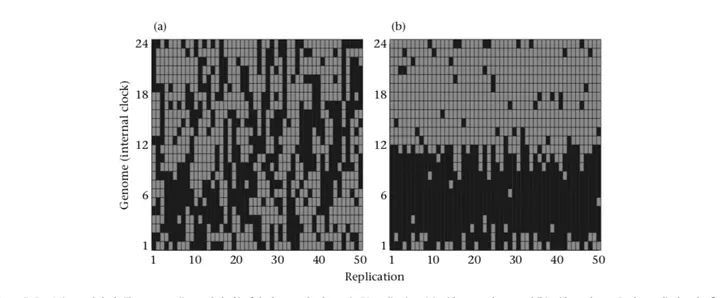Predation and the phasing of sleep: an evolutionary individual-based model

Abstract
All mammals thus far studied sleep, yet important questions remain concerning the ecological factors that influence sleep patterns. Here, we developed an evolutionary individual-based model to investigate the effect of predation pressure on prey sleep. We investigated three ecological conditions, including one that assumed a dynamic interaction between predator and prey behaviour. In condition 1, we found that monophasic predators (i.e. with one sleep bout per 24 h) select for monophasic prey that sleep perfectly out of phase with predators. In condition 2, predators were monophasic but the safety of prey varied as a function of their activity (sleeping versus awake). In this condition, the prey adjusted their sleeping behaviour to lower the risk of predation. Finally, in condition 3, we modelled a more dynamic interaction between predator and prey, with predator activity dependent on prey activity in the previous hour. In this scenario, the prey adjusted their behaviour relative to one another, resulting in either greater or lesser synchrony in prey as a function of predator searching behaviour. Collectively, our model demonstrates that predator behaviour can have a strong influence on prey sleep patterns, including whether prey are monophasic or polyphasic (i.e. with many sleep bouts per 24 h). The model further suggests that the timing of sleep relative to predator behaviour may depend strongly on how other potential prey partition the activity period.
Type
Publication
Acerbi A., Nunn C. L. (2011), Predation and the phasing of sleep: an evolutionary individual-based model, Animal Behaviour, 81 (4), pp. 801 – 811